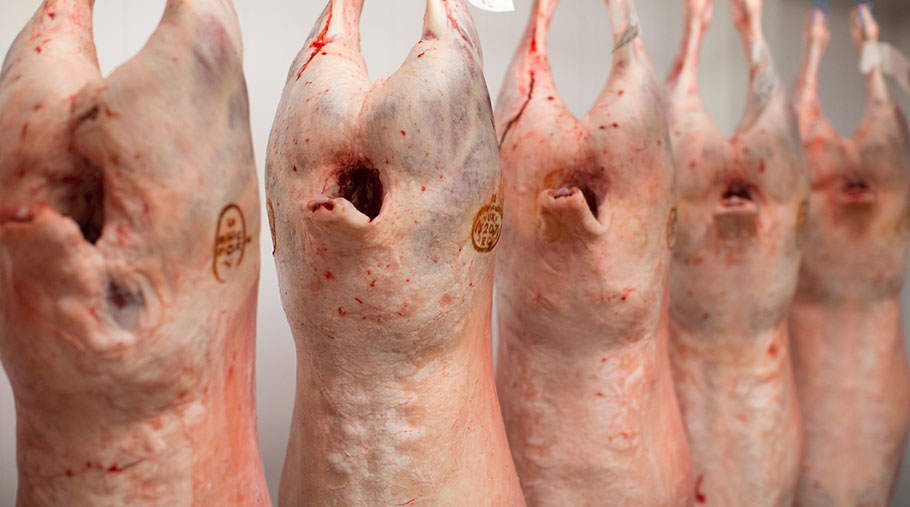New post-Brexit tariff plans help sheep, but hit other sectors
 © Tim Scrivener
© Tim Scrivener Sheep producers are set to benefit from existing tariff protection in the event of a no-deal Brexit, but beef, dairy and poultry farmers will see their tariffs reduced, while cereal, egg and fruit and vegetable growers will have no protection at all.
That is the effect of new tariff plans published by the government on Wednesday (13 March), designed to cater for certain “sensitive products” should the UK leave the European Union without a deal on 29 March.
See also: Farm leaders put pressure on MPs to reject no-deal Brexit
The chances of this happening are thought to be slim – especially with MPs due to vote on the issue on Wednesday evening – but it cannot be discounted altogether further down the line.
If implemented, the tariffs would only apply for one year, and they would only apply for imports.
Without a trade deal, exports of British food to the EU, for example, would still have to pay the EU’s own, higher tariff rates, making it harder for UK exporters to compete.
Reaction
Farming organisations have given a guarded welcome to the fact that at least some tariff protection is envisaged, contrary to the wishes of some consumer groups who want to see cheap food imports.
In the sheep sector, it appears there are to be no cuts in import tariffs from those that currently apply, while the so-called Tariff Rate Quota – which allows New Zealand and Australian lamb in at zero tariff – will not be increased either.
National Sheep Association chief executive Phil Stocker said his organisation was “extremely pleased” to see the government recognising the importance and sensitivity of the sheep industry,
“We welcome the release of the tariff schedule which provides us with some security,” he said.
And, while New Zealand and Australia would be able to continue shipping lamb tariff-free into the UK, “they will not be able to increase their input”.
But beef producers would face greater competition from imports in the event of a no-deal Brexit, with import duty halved from current EU levels of 12.8% to 6.8% on some lines.
Similarly, dairy products and pork will see tariff levels cut “considerably”, while poultrymeat would face a 40% reduction in its import tariff.
Distortions
“Although we are pleased to see that the government has listened to our concerns and elected to treat many agricultural sectors sensitively, it is enormously worrying that some sectors will not have this protection – noticeably eggs, cereals, fruit and vegetables,” said NFU president Minette Batters.
“Even those sectors that are treated sensitively will, in most instances, see worrying and large reductions in the tariff rates currently charged on non-EU imports.”
Ms Batters also criticised the approach taken by the government to lump some products under a single tariff code, for example whole carcasses and high-value cuts of fresh beef, which means there is a high chance of market distortion.
“We recognise the importance of ensuring food prices for consumers do not rise in a no-deal Brexit, but we are deeply concerned that the approach to tariffs published today will mean a greater reliance on food produced overseas,” she added.
Food and Drink Federation chief executive Ian Wright describe the tariff schedule – which runs to 1,477 pages – as “confusing and complex”.
Planned changes to tariff rates in event of no-deal Brexit
- Sheep: no change to existing tariffs and tariff rate quotas
- Beef: 6.8% tariff of €93.3/100kg, compared with 12.8% (€176.8/100kg) currently
- Poultrymeat: €61.8/100kg, compared with €102.4/100kg
- Butter: €60.5/100kg, compared with €189.6/100kg
- Cheddar: €22.1/100kg, compared with €167.1/100kg
- Boneless pork: €11.4/100kg, compared with €86.9/100kg
- Eggs, cereals, fruit: no tariffs.
€1= £0.86
